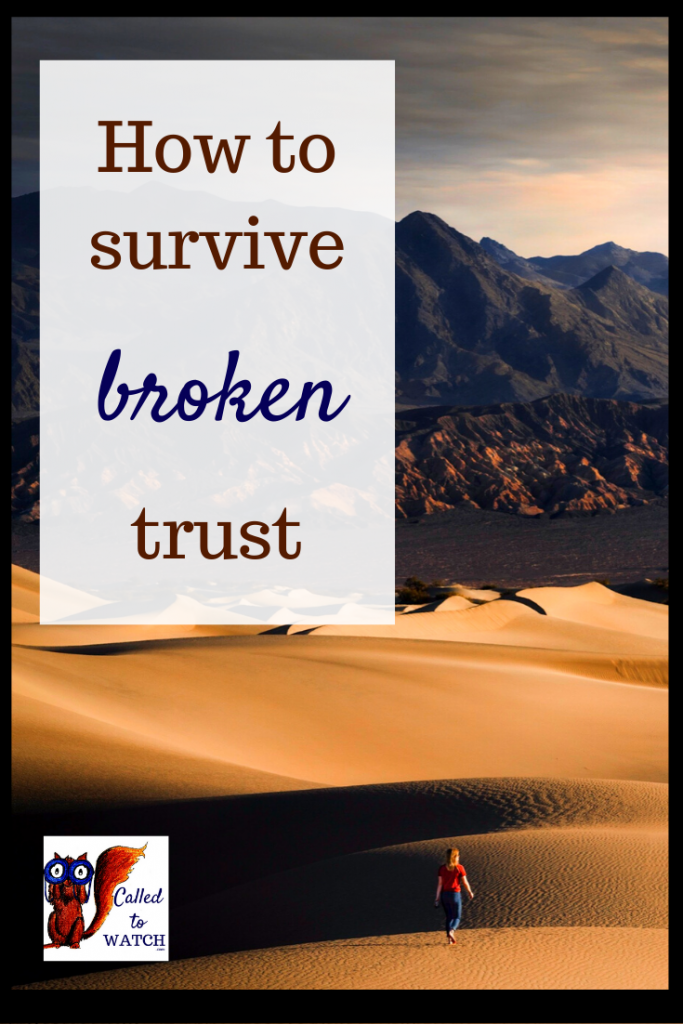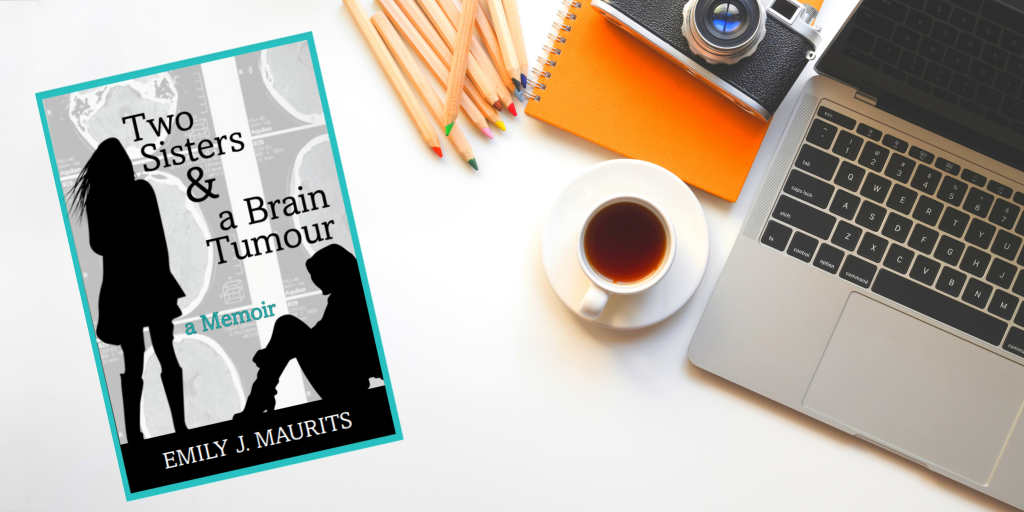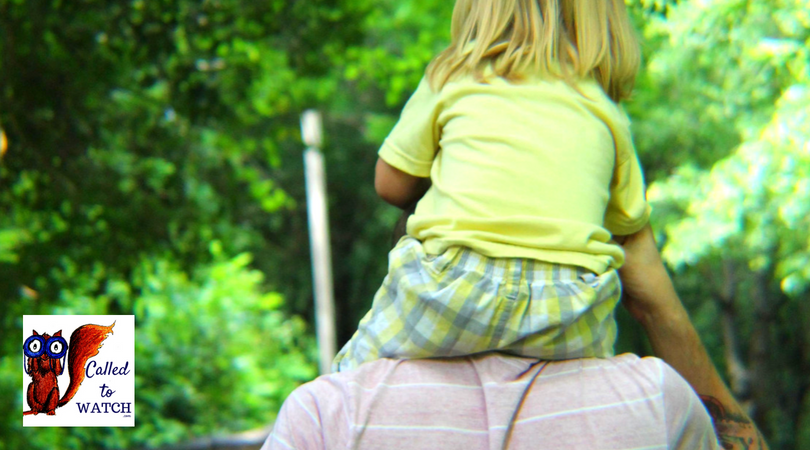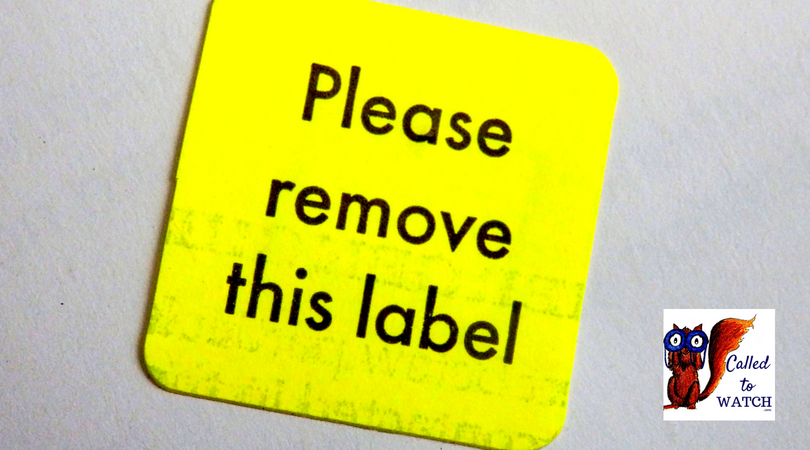We’ve talked about how to trust and how to be trustworthy in the context of chronic illness – even when it’s really hard. We know how important trust is, and what a gift it can be. But what do you do when trust is broken? When things don’t go as they should go, when words are said that can’t be unsaid, or when actions speak louder than words and the message they send is wrong and unkind?
It’s happened to all of us, and it will happen again. We trust someone, and we are let down. Or we let someone else down, and feel like we’ve failed them and ourselves as well. Or perhaps we’ve simply refused to trust for so long that our relationships lie in tatters around us, and our world is not the place we hoped it would be.
What do we do? Can trust be repaired?
I think so. Trust is a decision we make over and over, and so there are always opportunities to learn to trust again. We live in a world that is moldable, and full of possibilities. We serve a God who is able to work in impossible situations. Furthermore, people are not static, we are continually developing and changing and so relationships too can always change for the better. But how do we get there? Here are some steps you might find helpful:
ONE: Grieve that we live in a world where people are not perfect and trust is broken.
Grief is about acknowledging hurt. Nothing can be changed until it is accepted in all its complexity, and one way to accept is to mourn.
Grieve for what could have been.
Grieve for what can never be.
Grieve for opportunity lost.
Grieve for feelings hurt.
Grieve for broken relationships.
Grieve for a torn apart world.
Grieve that life is not as it should be. This might sound depressing, and a bit like wallowing in self-pity, but I want to maintain that it is important. The reality is, life is not supposed to be like this – full of struggle and brokenness and trustlessness. When we accept this, it is going to be painful, and there’s going to be some grief involved. That’s okay.
TWO: Define the situation.
Having your trust broken hurts. Failing to be someone who is trustworthy hurts. It can be really helpful to define the situation to yourself, as though you’re telling someone else. Aside from all the emotions and interpretations and meaning you’ve placed on things said or done – what actually happened? What was actually done? What was actually said?
It’s easy, in our leap to deal with the pain of a broken relationship, to assign blame wrongly. Take a step back, take a breath, and give yourself a chance to write things out.

THREE: Talk together about what happened.
Sometimes it’s better to wait for a while before bringing up the situation, sometimes it might need to be addressed straight away. Whatever the case, it can be helpful to define the desired outcome before you go into the discussion. What will make this conversation ‘successful’ in your eyes? This is important because so often we enter conversations with unrealistic expectations (the other person will apologise immediately with tears) and then we throw yet another emotion (disappointment) into the mix. Here are some expectations I find helpful:
This conversation will be successful if:
- I listen to what the other person has to say.
- I accept blame where appropriate and ask forgiveness.
- We remain friends.
Sometimes the conversation is not going to be ‘successful’ according to our definition – and that’s okay! It may be painful, but it can be helpful to remember that you tried to fix the situation; God is ultimately in control; and there may be another chance for resolution.
FOUR: Make the decision to trust again.
Trust is crucial in relationships, and a beautiful gift. When broken, it can be really difficult to continue in a relationship, to make the effort to reach out, to be trustworthy.
There are times where it is not possible to trust someone in the same way again, and times when you will need to redefine your relationship with someone so that you can trust again. What is important is that we remember that we serve a great God. Trust is always possible in some respect and mended relationships can happen. Let’s face the future with hope, because while trusting will always be costly, not-trusting is even pricier.
Note: These steps happen best within the relationship, but sometimes that’s not possible. Most of them, you can still go through just with yourself and God, or perhaps a friend outside the situation. Leaving relationships as broken and as messy as they are when the breach of trust first occurred, is only going to be more painful in the long run.
//So what do you think? Are these steps helpful? Do they seem too optimistic? Too black and white? I’d love to hear your thoughts!
Have you read my memoir, Two Sisters and a Brain Tumour? It’s the story of (you guessed it!) two sisters, the diagnosis which turned their lives upside down, and ended up saving them. It’s a raw, honest account of hunting for hope in the darkness of chronic illness and caregiving, and finding laughter and even joy along the way.
You can find it here!
PS: Enjoyed the post above? Get the next one delivered straight to you! Sign up for email notifications
I’m also on Facebook, Pinterest, Instagram & Twitter! Meet me there for more interesting reads, resources and community.






